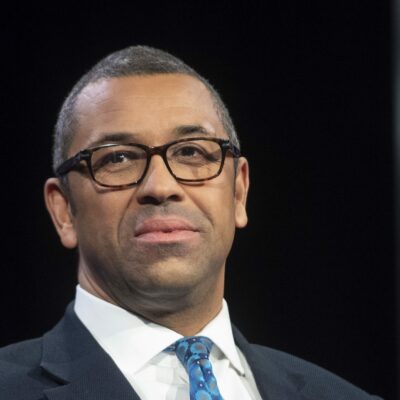While deep inequity persists in our society, the uncomfortable truth is that it is right that pupils’ circumstances are taken into account in university admissions, writes Nick Brook.
Securing a degree from a top university remains, according to the Sutton Trust, one of the surest routes to social mobility.
Yet despite some headlines that “private school pupils will lose out on Oxbridge places to state school peers this year”, the odds of even getting close to one remain heavily stacked against the poorest in society.
The path from birth, through school to university has all the characteristics of a chaotically managed queue at a theme park.
If the last twenty years have taught us anything, it is that narrowing the achievement gap cannot be achieved by schools alone
In this queue not everyone is equal. Some are very good at pushing themselves and their children forward, capitalising on opportunities to jump ahead of others and having the strength or good fortune to weave their way to the front.
In education terms, these are more often families with the economic clout that enables them to secure multiple advantages for their children – whether that is through buying a house in the catchment area of a great school, arranging additional personal tutoring, or paying for after-school enrichment activities.
‘Those without advantage will slip further back’
Those with sufficient financial muscle find the route to the front easier. A few may get carried along on their coattails, but many more without luck or advantage will slip further back. Some of those at the back of the queue look at the slow progress being made and simply give up.
To top it all off, alongside the main queue there is the fast-track – private education – where if you can afford it your place at the front of the queue is in little doubt, and a place at university all but assured.

Ours is a country where talent and potential do not naturally rise to the top.
If there is indeed a productivity challenge in industry, as Liz Truss has noted, then part of the answer is to ensure that the state is better at unleashing the potential in all our communities.
This requires significantly higher levels of investment in those children, young people and families who simply have more barriers to navigate.
To ensure the most productive workforce possible, we need to nurture all talents, irrespective of where you were born or who you were born to.
This is why the ambition behind a tutoring revolution in schools was precisely the right one and so widely supported by social mobility charities.
Children from poorer families absolutely should have access to the same tutoring support that was previously the preserve of only those that could afford it.
It is also why it is so important that this revolution cannot be allowed to stall through challenges with the vehicle intended to deliver this – the government’s National Tutoring Programme.
‘The attainment gap could get even worse’
A report published this week, by the Institute of Fiscal Studies, has found that the achievement gap at 16 between disadvantaged pupils and their more affluent peers is the same now as it was two decades ago.
As we face the worst economic conditions in a generation, there is real potential that this gap could get even worse, not better.
If the last twenty years have taught us anything, it is that narrowing the achievement gap cannot be achieved by schools alone.
Growing economic inequity and deepening societal challenges mean that schools can find themselves running to stand-still in pursuing equity for all.
The levelling-up agenda needs proper investment and political determination to address some of the compounding factors beyond the school-gate that make achieving great outcomes a harder task in the most deprived and marginalised parts of the country.
Of course, no-one in the fast-track likes having to wait whilst others are admitted, having already paid considerably more for the ride.
But while the state struggles to address the persistence of deep inequity, the uncomfortable truth is that it is right that universities prioritise places for poorer pupils, using contextual admissions to take account of circumstances, despite the criticism they have received for doing so.
This is not social engineering – it is simply about recognising the depth of talent, ability and potential that has for too long been overlooked, for want of a top-grade.
Nick Brook is deputy general secretary of the National Association of Head Teachers.








Totally subscribe to this view as I was a product of this inequity.
I worked so hard to overcome financial barriers, low teacher expectation, cultural and many mare.
Sheer tunnel vision and a strong faith got me through, definitely not luck either.
I therefore need to give give give so others are able to get, get get!!!
So the most disadvantaged are able to get a piece of the cake!!!